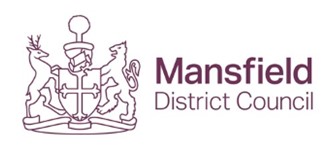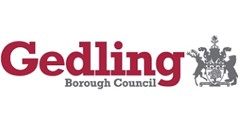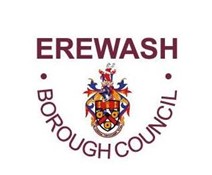Welcome to the latest edition of the D2N2 Economic Recovery Report.
This report pulls together information from across the region to understand the impacts of Covid-19 on our economy.
A PDF version of this D2N2 Economic Recovery Report is available for download here.
This latest report focuses on several key areas:
- D2N2 Economic Risk and Recovery Tracker
- D2N2 Local Skills Report
- Summary of Business Intelligence
- Links to Data on D2N2
For previous editions of the D2N2 Economic Recovery Report, please visit here.
1. D2N2 ECONOMIC RISK & RECOVERY TRACKER
We track several high-level indicators to give a snapshot of the D2N2 area’s progress towards recovery. A brief overview of monthly indicators available at a local level is below.
Unemployment and work-related benefit claims continue to follow a slow recovery path decreasing by 7.8% between May 2020 and January 2021 after roughly doubling between March and May 2020. Nationally, the claimant count has decreased by 3.4% since May 2020. In January 2021 the claimant count was at 75,000 compared to 39,200 claimants last January, making up 5.4% of the working age population, lower than the 6.2% national average.
Coronavirus Job Retention Scheme, which supports employers in paying their employees furloughed from 1 March 2020, has seen an increase in claims in November and December. A total of 111,500 D2N2 jobs were supported through the scheme in December 2020, 30,700 of which were in Accommodation and Food Services and a further 19,000 in Wholesale and Retail Trade.
Self-Employment Income Support Scheme, which provides support for self-employed individuals whose business has been adversely affected by Covid-19, through a series of grants. The number of claims in December 2020 have decreased compared to previous months totalling 52,600, a third of which working in Construction sector. Overall, the December 2020 furlough and self-employment claims made up 15.2% of population in employment pre-pandemic, compared to 17.7% nationally.

Green colour on the key metrics show better performance compared to national average
Job vacancies have recovered and January figures show a 4.9% increase from January 2020 levels, compared to a 1.1% decline nationally. The number of job vacancies in D2N2, however, is still below the number of unemployment claimants. While apprenticeship vacancies follow a similar recovery trend, the numbers are 11% below last year’s levels . Nationally, apprenticeship vacancies were 21.5% lower over the same period.
D2N2 workplace activity is around 40% below the pre-pandemic baseline, according to Google mobility data for D2N2, which remained below November and December levels throughout January and February.

Workplace mobility trends, Google
Negative impact of Covid-19 on ambitious businesses has decreased over time. Beauhurst estimate that, as of 1 March 2021, around 9.6% of businesses are facing a high level of risk whilst 20.9% may experience a positive outcome. Nationally a slightly higher proportion of ambitious businesses are experiencing high levels of risk (10.6%) and potentially positive outcomes (21.7%).
As expected, sectors that rely on customer footfall such as leisure and entertainment and retail are the most significantly affected while tech driven sectors that enable remote working, such as VoIP, EdTech, eHealth and Digital security, have the highest proportion of positively impacted businesses.
Covid-19 business impact over time, Beauhurst

3. SUMMARY OF BUSINESS INTELLIGENCE
Below is a summary of intelligence shared by key regional partners including the Chamber of Commerce, FSB, IOD, CBI, Make UK, NFU, the D2N2 Growth Hub, universities and local authorities.
Covid-19
- There is broad agreement a few more weeks of lockdown would be preferable to having to enter a fourth lockdown, so while businesses welcome the timetable for re-opening, ongoing clarity of government messages and support for businesses to reopen remain vital. Small businesses remain disproportionately exposed to the increased costs of reopening.
- The extension to furlough has been very well received, but many businesses still require further support to adapts as we move towards full re-opening
- Large businesses are setting up lateral flow testing stations. Covid-19 safety/security is now the top concern for Make UK members
- Recruitment is up a little with unemployment levels remaining level or slightly lower.
- Across all sectors and places, concerns over workplace mental health remain very high, despite the welcome increase in the support available. FSB and Make UK report that their recent mental health events have been heavily oversubscribed
- FSB and NFU report some concerns over the lack of available (or awareness of) the support to smaller hospitality and retail businesses outside city centres
EU Exit
- After the EU Exit deal, there have been signs of increased confidence, especially amongst manufacturers
- However, Make UK reports that 78% of members are still having supply chain disruption, with the Netherlands remaining a particular hotspot for difficulty at the border. FSB reports of additional costs of export to the EU of 5% and 15%
- With a high level of merger and acquisition work, there is some concern about a potential increase in asset stripping
Green Recovery
- Many businesses are committing to a green recovery and, while there is more support than ever out there to decarbonise, the region needs to do more to ensure we are reaching all sectors and all places, particularly to drive home peer-to-peer messages about the benefits to the bottom line of going green
- Our universities are increasingly focusing business outreach into businesses that either have strong low carbon credentials or which have expressed an interest in support to decarbonise
Other issues
- Reports of crime and anti-social behaviour targeting business premises in our city centres have increased and are a focus of groups such as BIDs
- Farmers remain concerned about the potential funding gap after the end of EU basic payments and the implementation of grants under the new ELM system
2. D2N2’S LOCAL SKILLS REPORT
The D2N2 Local Skills Report was published in March 2021, and showcases our skills landscape and priorities for development. This is a new central function for our Skills Advisory Panel which will help both to inform local investment decisions by our skills providers and employers, and national policy through our partners in the Department for Education.
Our key skills strengths and needs are summarised as follows:

4. LINKS TO DATA ON D2N2
Our D2N2 Economy Dashboard summarises key monthly and medium term trends from official data, together with trend data from Google Mobility and provides a forward look at potential trends in sales, employment and investment based on the findings of the Decision Makers’ Panel. Each page shows a D2N2 perspective and can be filtered down to district level.
Other dashboards that are regularly maintained include:
Historic dashboards – no updates planned:
- Apprenticeships in 2020
- Jobs regarded as teleworkable during Covid-19 lockdown
- Growth Hub survey data 2020
- Key data on Towns Fund areas 2020
Data on D2N2
Midlands Engine Observatory





























